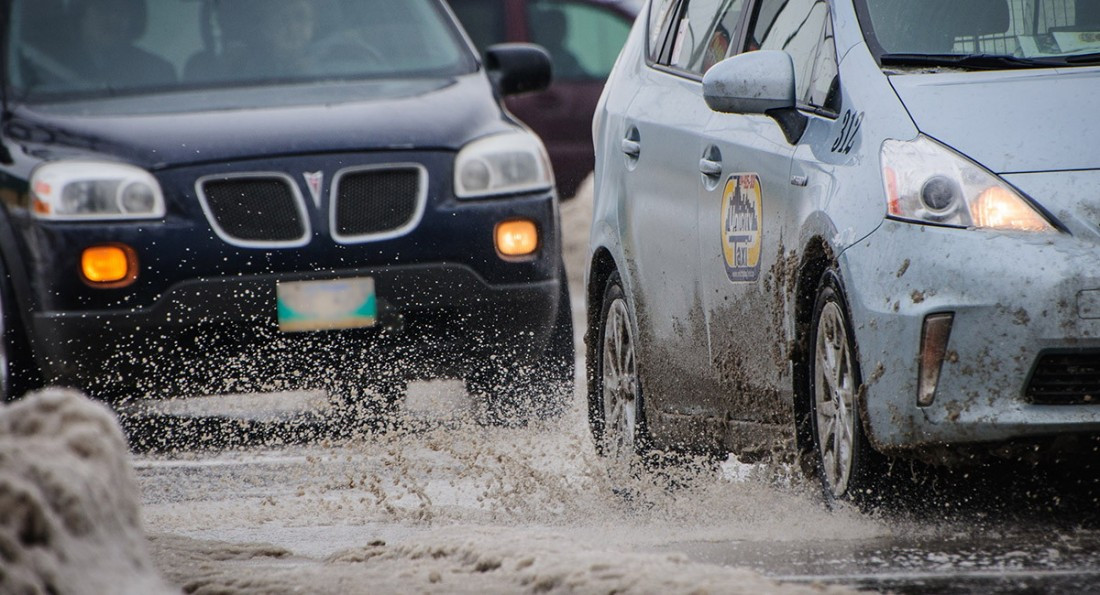Water water everywhere, but not a drop to drink?
City infrastructure failing under strain of extreme
Winnipeg’s winter season this year has been one we won’t forget anytime soon. Our city was colder than the North Pole and Mars for a day, and according to the Weather Network the Winnipeg area was the coldest place on earth this winter, with 54 days below normal temperatures.
As a result of this winter’s record-breaking cold weather, some new numbers will go down in history. Winnipeg is currently experiencing the highest number of frozen water pipes on record since 1979, and from December to February 24 there were 47 more water main breaks compared to our average, with the number still growing.
Alexandra Winters, 24, lives in The Scarsdale, an apartment on Kennedy Street across from the Legislature building.
“The water main broke outside our building, and we are in the basement less than five feet from where it happened, so it sounded like someone was running a bath behind our living room wall,” she says. “The water was shut off in the middle of the night, and then fixed two days later.”
These problems are affecting a growing number of people all over the city, and a great deal of the blame is being placed on the unforeseen extreme weather conditions this winter.
Danny Blair, professor in the University of Winnipeg department of Geography who specializes in climatology, suggests this is indeed the case.
“The severity of this winter was not forecast at all, by anyone, and the persistence of the really cold spells was not expected… it has been very unusual,” he explains.
“To be fair, very cold winters are rare now, but they are obviously still possible even with climate change… which has warmed our winters over the last 40 years.”
Lisa Fraser, the communications officer for the City of Winnipeg seems to agree with Blair’s assessment, stating “it would not have been possible to predict the type of winter conditions the Winnipeg area has experienced.”
Regardless of the fact that no one could have foreseen this, the city now has to deal with the consequences of having frost seven feet deep in the ground.
“We have all the specialized electrical thawing equipment that is possible to have,” Fraser says. “They are no longer manufactured, or available anywhere for purchase or rental.”
According the City of Winnipeg website, there are as many as four crews working seven days a week, 11 hours per day on repairing water main breaks and leaking or broken valves.
Essentially, the same crews of workers must deal with the issue of frozen pipes as well as water main breaks, which can’t be serving anyone, or their tax dollars, very well.
For the time being, people with frozen pipes may just be better off calling a plumber, as the City of Winnipeg says it will “thaw at no cost if the pipe is frozen between the water main and the property line…if the pipe is frozen between the property line and your home, we can thaw the pipe at your expense.”
Published in Volume 68, Number 23 of The Uniter (March 12, 2014)







